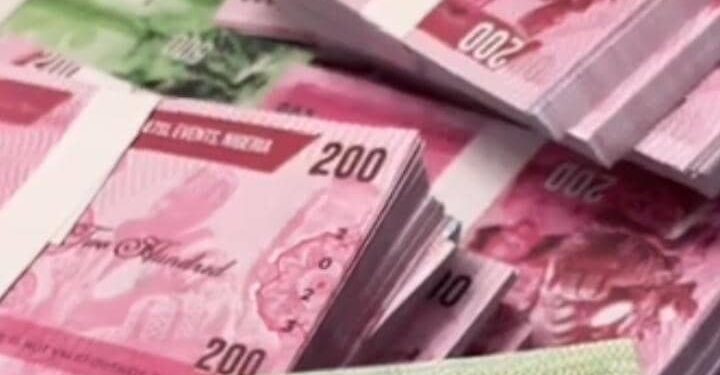With the flashlights of the Economic and Financial Crimes Commission on abusers of Naira, Nigerians have devised new methods to ensure that the funfair that comes with the spraying of naira at social functions remains.
Nigerians became conscious of the seriousness of the crimes when the anti-graft agency made a statement with a controversial cross-dresser, Idris Okuneye, aka Bobrisky, who was sentenced to six months imprisonment without the option of fine for abusing the Naira.
Earlier in February 2024, actress, Oluwadarasimi Omoseyin, was convicted and sentenced to six months in prison for defacing the naira notes by spraying and stepping on them at a social event in Lagos.
After Bobrisky’s conviction a socialite, Pascal Okechukwu, aka Cubana Chief Priest, got a N10m bail after he pleaded ‘not guilty’ to a charge of abusing the Naira.
After the former’s conviction and the latter’s trial, PUNCH Online highlighted nine actions involving the naira that could lead to legal consequences.
In the report, The PUNCH listed spraying, writing, tearing, stapling, dancing or stamping on the naira, selling, mutilating, rejecting the naira, and money bouquets as actions involving the naira that could lead to legal consequences.
The Clean Notes Policy of the Central Bank of Nigeria was implemented to enhance the visual appeal and durability of the banknotes in circulation, as stated on the official website of the apex bank.
According to the CBN, the objective is to guarantee that the naira banknotes in circulation maintain a high standard of quality, enabling them to be easily processed and accepted by the general public.
But in beating the offences, partygoers and musicians have invented new ways of spraying the naira.
With the invention, some musicians have applauded the EFCC’s recent move to enforce the ban on abuse of the Naira.
Though many believe that the ban on spraying money at parties will affect musicians, especially indigenous ones, some of them have said it is a good development.
In separate interviews with one of our correspondents, popular musicians— Wasiu Alabi, aka Pasuma; Saheed Osupa, and Adewale Ayuba— maintained that the country’s currency had to be respected.
Money boxes: Usually used by musicians, boxes are now permanent features of social functions in Nigeria provided by celebrants or musicians for attendees who rather than spray money would just drop their wads of cash to honour the celebrants or appreciate the craft of musicians.
Bank transfer: Guests at weddings, burial ceremonies, and birthdays among others now transfer money through their banks’ apps to celebrants while on dance floors to replace the amount that should have been sprayed on the celebrants.
Money vouchers: Partygoers of any social function can buy the equivalent amount they intend to ‘spray’ celebrants as money vouchers and transfer the cash equivalent to the agent’s account (event planners).
For the money vouchers, the images of the celebrant or event host are printed on the notes. The common denominations are N1000 and N500 notes.
























